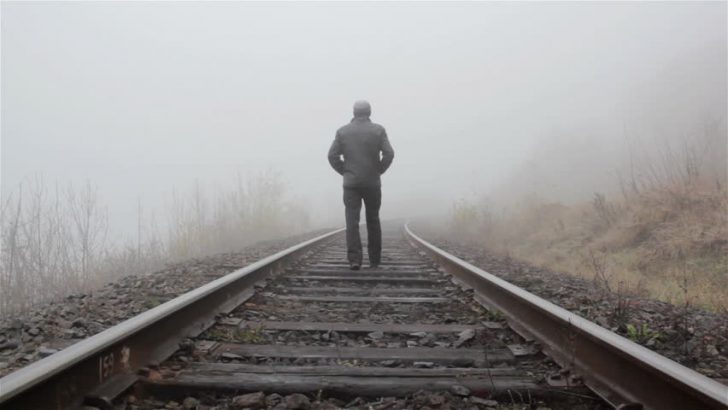Garry O’ Sullivan
When it comes to the Irish Church, everyone can diagnose the problems but few, if any, have outlined a sound path to a cure — it is the fog of our times, everybody knows what should have been done in the past but there is little vision for the future.
Milan Kundera, (quoted by Pádraig McCarthy — see below) having previously been a supporter of the Czech Communist Party, wrote in Testaments Betrayed (Paths in the Fog):
”Man proceeds in the fog. But when he looks back to judge people of the past, he sees no fog on their path. From his present, which was their faraway future, their path looks perfectly clear to him, good visibility all the way. Looking back, he sees the path, he sees the people proceeding, he sees their mistakes, but not the fog.”
The Eucharistic Congress is a beacon in the fog only six months out from now and for those who are gearing up for it, and even for those who may not be that enthusiastic about it, it does offer a valuable opportunity to clear the fog for a while and get down to basics.
It is an opportunity to debate, discuss and even argue about it, if necessary (the Association of Catholic Priests is holding a synod type event before the Congress).
Part of the problem for a long time, as I’ve seen it, is the lack of any real intelligent discussion of the central tenets of our faith, which is odd for a faith that only knows about God really in what He isn’t, rather than what he is.
Given that most of us end our religious instruction after communion and confirmation, the following true story should wake us up about the future of a Church in Ireland that is afraid to wake up to the reality of the faith crisis.
A friend of mine was driving his two kids home from school and the eldest, who had recently made his First Communion, asked why a girl in his class didn’t receive communion.
”Because she’s a Protestant,” the father replied, knowing the girl’s family.
And as children do, the boy wanted to know what was the difference between what Protestants believe and Catholics believe about ‘Holy Communion’.
The father said: ”Protestants believe that the bread and wine are symbols of the love of Jesus for his people and they do it in his memory as he asked. Catholics believe that the bread and wine are turned into the body and blood of Jesus and that this was a gift of God to his people.”
”Daddy,” the older boy said from the back of the car. ”Yes?” said the father. ”Daddy, I think I might be a Protestant.”
After a few moments silence, the younger boy piped up and added: ”Daddy, I think I might be a Protestant too.”
How many of us adults are equipped to convincingly answer these questions, out of the mouths of babes comes a stark reflection on the knowledge of the faith in our Church.
It might seem counter-intuitive but I believe we should encourage doubt because it means people are thinking about their faith.
We need to engage with it, explain, argue, debate, stand-up for our beliefs, not in some battle drum fashion but as adults who have found something worthwhile and want to share it.
In his article in the January issue of The Furrow, Pádraig McCarthy asks why we don’t have synods like in the past when the Church went through difficult times (between the years 1101 and 1179, there were 12 national or provincial synods in Ireland).
He writes: ”There is the danger of achieving nothing more than a talking-shop, as Archbishop Diarmuid Martin has pointed out. A ‘talking shop’ is just one step of the way, but a necessary step.
”It would be nothing more, only if we lack the will and the courage and the spirit to go beyond it.”
McCarthy continues: ”We need more than just structures for living out our Communion as the Body of Christ.
”We need cultural transformation. We need a new heart and a new spirit. We urgently need to grow beyond a parent-child model.
”It is pointed out frequently that clericalism is a root cause of many of our problems, and of the disaster of both the abuse of children and of the way the Church failed to respond to it. There is a similar mindset in other professions.
”What John Paul II said is clear: better structures of participation, consultation and shared responsibility are ‘an intrinsic requirement of the exercise of Episcopal authority’.
”If the foot-soldiers disregard the generals, tasks are compromised. Equally so, however, if the generals disregard the experience of the foot-soldiers.
”In the Church, as in other organisations, if hierarchy of status takes precedence over hierarchy of values, hierarchy of truths, hierarchy of love, then the mission of the Church is compromised.”
I believe the Eucharistic Congress is the perfect vehicle for all Catholics to dialogue about how we respond to the call of Jesus to be his real presence in our lives, in our Church, in our society.
Can we listen to other members of that body in a respectful manner and hear their perspective just as Jesus heard St Thomas’ doubts and concerns?
After all, it was Thomas’ doubts that echo most clearly our own humanity.
Be not afraid.


 The Eucharistic Congress can be a beacon in the fog for those on the path to renewal
The Eucharistic Congress can be a beacon in the fog for those on the path to renewal